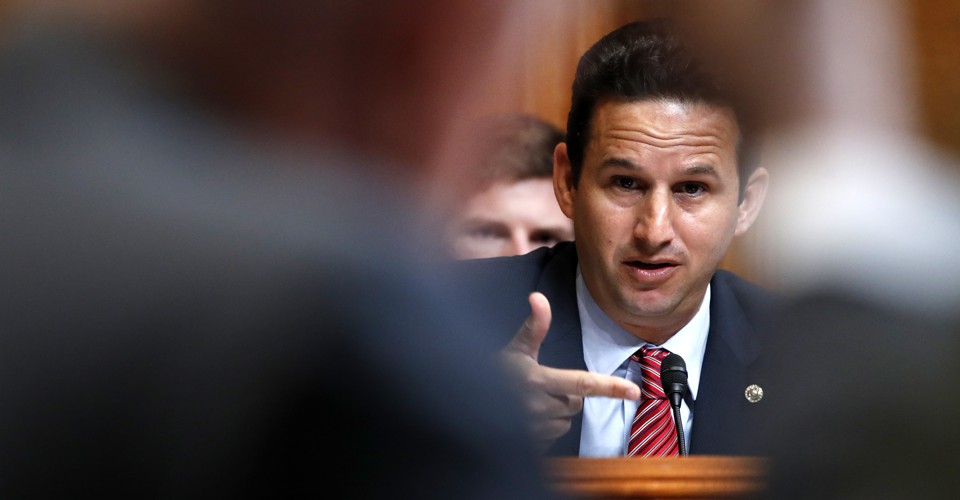Senate Democrats Are Getting a Head Start on Climate Change - 3 minutes read
 Brian Schatz's Plan for the Climate Special Committee
Brian Schatz's Plan for the Climate Special CommitteeSchatz’s political judgment is shaped by this history. When assessing presidential candidates on climate, he said, he tries to look past policy proposals and focus more on how candidates talk and think about the issue. “I think everyone running is going to [range] from good-enough to excellent, in terms of what they’re officially for,” he said. “The real question is, should they become president, will they move, and move aggressively? Or will [climate] be the fourth issue they get to in the third year?”
Read: Democrats still don’t know how to talk about climate change
Above all, he hoped to understand why candidates cared about climate change. “That would give me some insight into whether or not, when push comes to shove, and there’s a need to prioritize among competing issues, whether they’re going to put climate action at the top of their list,” he said.
For now, his sense of what form a future climate bill might take is mostly broad strokes. Any Democratic-led climate effort must simultaneously strengthen labor unions, he said. “We just can’t do this and say some pablum about a just transition,” he said. “That’s offensive, honestly. If you work in power generation, or pipeline laying, or electricity transmission, you want to know, how is this going to impact your ability to provide for your family?” His first phone call after taking over the special committee was to Richard Trumka, the president of the AFL-CIO.
Other ideas are still taking shape. Along with several other Democrats, including Senator Kirsten Gillibrand of New York, he has co-sponsored a bill to tax carbon pollution.
The type of policy that’s emerged from the committee so far is more nuts-and-bolts than a total transformation of the economy. So far, power-utility executives are most interested in federal incentives for battery storage, he said. The committee will encourage more federal financial regulators to push companies to disclose their climate risk, whether from stranded assets or extreme weather. The U.S. Commodities Futures Trading Commission recently voted to assess climate-related risk. Eventually, it could force companies to calculate how rising seas, extreme weather, and climate-associated productivity losses might threaten their investments. “You create an incentive to take down that risk,” Schatz said.
Read: It’s younger and cooler than a carbon tax
Of course, this is the plan for now. Events have a funny way of shifting opinions. I talked with Schatz a few hours before the first Democratic primary debate. While we spoke, dozens of climate activists protested nearby at the DNC’s headquarters to demand that the party schedule a climate-change-focused debate. Schatz was skeptical of the idea. “Let’s say they had a health-care-only debate,” he told me. “I don’t think that, for your average viewer … that’s as interesting as an actual debate. So what I want is for climate to be covered extensively in every debate, not for it to be siloed.”
Source: Theatlantic.com
Powered by NewsAPI.org
Keywords:
Brian Schatz • Climate change • Politics • History • Democracy • Global warming • Global warming • Stroke • Democracy • Trade union • Pablum • Pipeline transport • Electric power transmission • Richard Trumka • President of the United States • AFL–CIO • Democratic Party (United States) • Kirsten Gillibrand • New York • Pollution • Economy • Electric utility • Financial regulation • Stranded asset • Commodity market • Futures contract • Commission (remuneration) • Risk • Productivity • Risk • Carbon tax • Brian Schatz • Democracy • Activism • Democratic National Committee • Climate change • Brian Schatz • Health care •